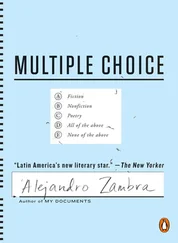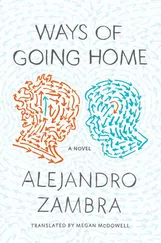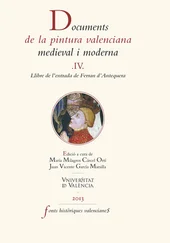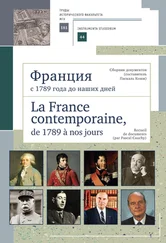I remember one morning during free time, we were warming up for a math test with no teachers in the room, and the fat one was talking nonstop with his seatmate. Little Carlos shouted at him: “Shut up, you fat faggot.”
I remember the fat one got up, furious, more effeminate than ever, and answered: “Don’t you ever call me fat again.”
I remember smoking marijuana during recess, in the basement, with Andrés Chamorro, Cristián Villablanca, and Camilo Dattoli.
***
I remember Pato Parra, one of four people repeating junior year. I remember his drawings.
I remember he sat on the first bench in the middle row, and the only thing he did during class was draw.
He never looked at the teachers — he was always hunched over, concentrated on his drawing, wearing his coke-bottle glasses, his hair falling over the paper.
I remember the quick movement that Patricio Parra made with his head to keep his hair from messing up the drawing.
None of the teachers scolded him, not for his long hair or for his absolute disinterest in their classes. And if one of them asked him why he wasn’t participating, he would apologize dryly and politely, leaving no room for discussion.
I got to know him only a little, we talked only a few times. I remember one morning that I spent sitting next to him, looking at his drawings, which were perfect, almost always realistic: comics about unemployment, about poverty, all of them straightforward, free of histrionics.
He drew a picture of me that morning. I still have the drawing, but I don’t know where it is.
I don’t know if it was in June or July, but I remember it was a winter morning when we found out that Pato Parra had committed suicide.
I remember the cold in the Puente Alto cemetery. I remember the teachers trying to explain to us what had happened. And I remember wishing that they would shut up, shut up, shut up. I remember the emptiness afterward, all year, when we looked at the first desk in the middle row.
I remember that the teacher’s assistant told us that life went on. I remember that life went on, but not in the same way.
I remember we all cried in the school bus, which we called Caleuche, on the way back.
***
I remember walking with Hugo Puebla across the playground soccer field, our arms around each other, crying.
I remember the phrase that Pato Parra wrote, on a wall of his room, before killing himself: My final cry to the world: Shit .
4
I remember the final months at that school, in 1993: the desire for everything to be over. I was nervous, we all were, waiting for the big test, which we had spent six years preparing for. Because that’s what the National Institute was: a pre-university school that lasted six years.
One morning we exploded. We all got into a fight, shouting and hitting: an eruption of absolute violence whose origins we did not understand. It happened all the time, but this time we felt a rage or an impotence or a sadness that had never before revealed itself. As a result of this outburst, Washington Musa, the Inspector General, paid our class a visit. I remember that name, Washington Musa. Whatever became of him? How little I care.
Musa adopted the same tone as always, the tone we heard from so many teachers and inspectors during those years. He told us that we were privileged, that we had received an excellent education. That we had taken classes from the best teachers in Chile. And all for free, he emphasized. “But you people aren’t going to get anywhere, I don’t know how you’ve survived this school. You humanities people are the dregs of the National Institute,” he said. None of that hurt us, we had heard that reprimand, that monologue, many times before. We looked at the floor or at our notebooks. We were closer to laughter than tears, a laughter that would have been bitter or sarcastic or pretentious, but laughter still.
And nonetheless, no one laughed. While Musa droned on, the silence was absolute. Suddenly he started to tear into Javier García Guarda. Javier was perhaps the most silent and timid boy in the class. He didn’t get bad grades, or good ones either, and his file was clean: not a single negative mark, not a single positive note. But Musa, furious, was humiliating him, and we didn’t know why. Little by little we understood that Javier had dropped his pen. That was all. And Musa thought he’d done it on purpose, or maybe he didn’t think about it, but he took advantage of the incident to concentrate all his rage on García Guarda: “I don’t even want to think about the education you got from your parents,” he was saying. “You don’t deserve to be at this school.”
I stood up and defended my classmate, or, rather, I stood up and offended Musa. I told him, “Shut up, sir, shut up for once, you have no idea what you’re talking about. You’re humiliating him and it’s not fair, sir.”
An even more intense silence came over us.
Musa was tall, solidly built, and bald. In addition to his work at the Institute, he ran a jewelry shop, and he greatly enhanced his salary through sales at the school: every so often he would stop in the hallway to praise brooches, watches, or necklaces that he himself had sold to the teachers. With the students he was mean, icy, despotic, as dictated by the nature of his position: his reprimands and punishments were legendary. His defining characteristic was, I thought then and I think now, arrogance. But when I challenged him, Musa didn’t know what to do, didn’t know how to react.
“My office, both of you,” he said, thoroughly annoyed.
I remember that on the way to Musa’s office, Mejías came over to give us encouragement. I had acted bravely, but maybe it wasn’t bravery, or it was the indolent side of bravery: I was simply fed up, I didn’t care. Despite how close we were to finishing at the Institute, I would have been happy to go back that very day to “the school on the corner.” I thought I had found an excuse to get myself expelled. But I also knew they weren’t going to expel me. There were teachers who cared about me, who would protect me. Musa knew that.
In his office, Musa said, “As for you, García, I’m going to think very seriously about letting you participate in graduation. Tomorrow, first thing, I’m going to have a talk with your parents.” Only then, when I looked at García Guarda’s black and weepy eyes, did I realize that I had made everything worse, that the thing should have ended with a reprimand, with just one more humiliating moment, and García Guarda would have preferred that, but because of my intervention, it had all gotten worse. They involved parents only in the worst of cases, because at my school, parents didn’t exist. “Expel me instead,” I said, but I knew that wasn’t how this went: his way of punishing me was to torture García. I almost insisted again, but I held back, knowing I would only make things worse still.
“I’m not going to expel you, nor will I keep you from attending the ceremony,” Musa told me, and again I thought about how unfair it was for me to receive a lesser punishment than García. And I also thought that I couldn’t care less about a stupid graduation ceremony. But maybe I did care. I felt indestructible. Rage made me indestructible. But not only rage. There was also a blind confidence or a kind of stubbornness that had always been with me. Because I spoke softly, but I was strong. Because I speak softly, but I’m strong. Because I never shout, but I’m strong.
“I shouldn’t let you go to that ceremony, I should expel you right now,” he told me. “But I’m not going to.” Thirty seconds went by, but Musa hadn’t finished. I was still looking out of the corner of my eye at the tears sliding down García Guarda’s face. I remember that he wrote poems too, but he didn’t show them to people like I did — he didn’t play at the spectacle of poetry. We weren’t friends, either, but we talked every once in a while, we respected each other.
Читать дальше












